Covid-19: Robin Swann warns virus will cast shadow into January
- Published
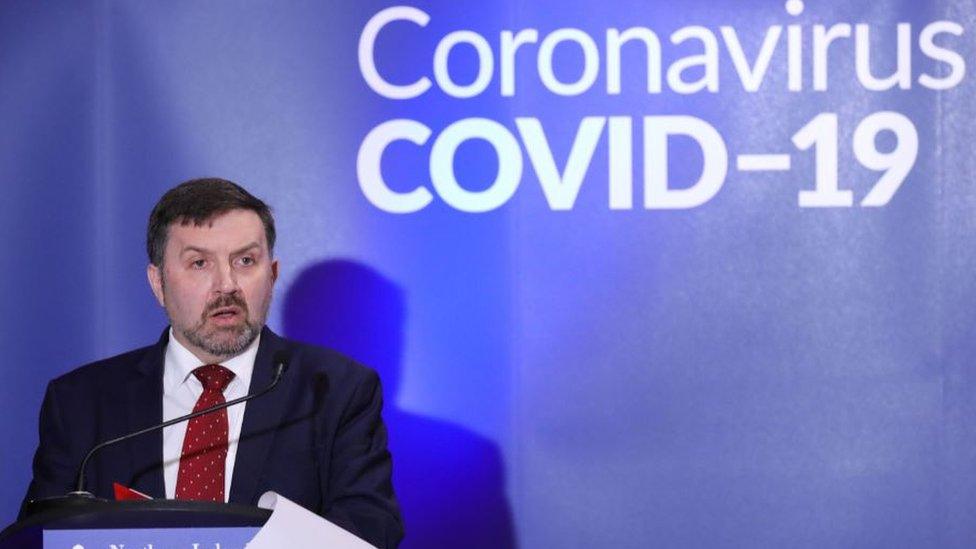
Health Minister Robin Swann says the greatest gift people can give loved ones this year is to look after them
The threat of coronavirus will hang over Christmas and "cast a shadow well into January", Health Minister Robin Swann has said.
He said the executive will consider "robust interventions" on Thursday to try and manage the spread of the virus.
"We now once again need a united front across society to get us through this period and into better days," he said.
The minister said he understood people were tired, but that the virus would "not be taking any time off".
The executive is expected to decide on Thursday the timing and extent of any further restrictions to be imposed after a five-day Christmas relaxation from 23 to 27 December.
Speaking at a press briefing at Stormont, Mr Swann said: "People will look to the executive for a robust intervention and rightly so, but let's remember the power is in all our hands - we can stop the virus spreading."
On Wednesday, a further eight deaths linked to Covid-19 were recorded in Northern Ireland, taking the Department of Health's total to 1,143.
There have been 510 more positive tests, meaning there have been 59,631 cases overall.
'Please go the distance'
There are 457 Covid-19 inpatients and 87 confirmed outbreaks in NI care homes.
Jennifer Welsh, the chief executive of the Northern Health and Social Care Trust, urged the public to "go the distance".
Her comments came after Antrim Area Hospital said it was under "severe pressure", with doctors treating patients in ambulances on Tuesday, with 17 vehicles outside the hospital at one point.
"Staff are mentally and physically exhausted because of this pandemic - this has been the most challenging year of their lives," said Ms Welsh.
She urged the public to follow health advice and to avoid "taking risks".
Vaccination plans
Mr Swann revealed that about 5,300 people in Northern Ireland had received their first vaccination by Tuesday evening.
He said this extended to residents in over 90 care homes so far.
Joanna Sloan, a senior nurse who last week became the first person in Northern Ireland to be vaccinated, also addressed the briefing.
Sister Joanna Sloan
She urged the public to show patience and to give health care staff time to roll out the vaccine.
Ms Sloan said hospitals were expecting a "significant spike" in cases in the coming weeks.
"We are looking at a very, very difficult January," she said.
"We are making extreme plans for what is ahead in January and thereafter."
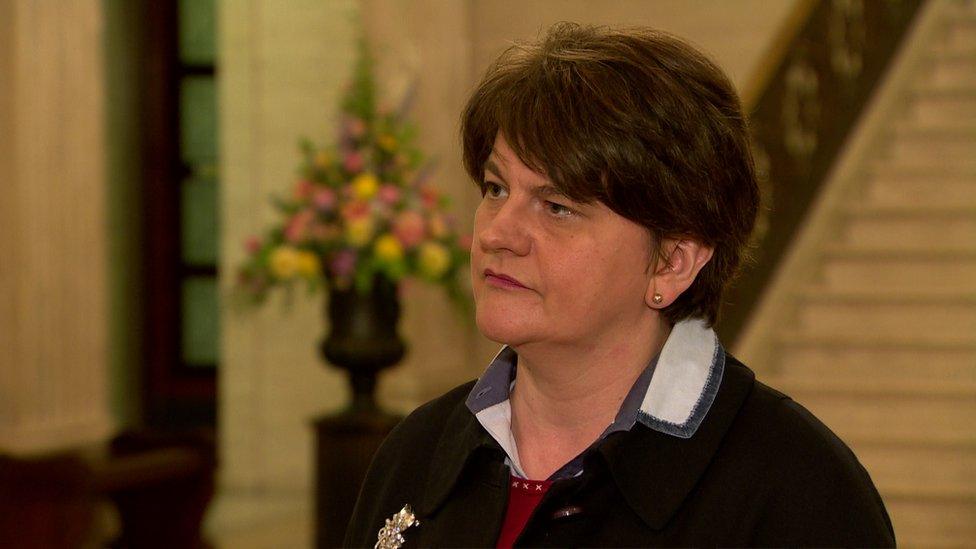
Arlene Foster said people had to take personal responsibility
Meanwhile, stronger guidance has been issued by London and the devolved governments about how people should celebrate Christmas this year.
First Minister Arlene Foster and Deputy First Minister Michelle O'Neill spoke to leaders from the other governments earlier.
She said people needed to take "personal responsibility".
There was a need to ensure people were not left alone at Christmas, she added.
"The decision to allow people to come together is a recognition that Christmas is such an important part of the year, but we do have to give very strong guidance," Mrs Foster said.
"Isolation and loneliness are huge issues, we have to balance that against keeping people safe."
Prime Minister Boris Johnson said: "A smaller Christmas is going to be a safer Christmas".
He also urged caution over seeing elderly or vulnerable relatives.
The temporary rules, which allow three households to meet indoors in a Christmas "bubble", and at places of worship or an outdoor public space, apply from 23 to 27 December.
Northern Ireland has a window from 22 to 28 December to allow time for people to travel.
When the changes were agreed in late-November, Mrs Foster said she hoped the announcement would give people space to plan over the holiday period.
'Taking responsibility'
Mrs Foster explained that she would wait to see what recommendations Health Minister Robin Swann would present at Thursday's executive meeting about further restrictions before coming to a firm position on new restrictions.
The difficulty "is the law of diminishing returns", the first minister outlined.
"It is about taking responsibility, but at the end of the day people have to take their own decisions."

Deputy First Minister Michelle O'Neill said people planning to meet others over Christmas needed to be "very careful" about limiting their contacts.
She said there was no doubt "that an intervention is required", but the timing of action by the executive needed to be a priority.
The deputy first minister said she was prepared to make the "right decision" on restrictions and not the "popular one".
"I am up for doing whatever is required so I'll work with Executive colleagues tomorrow to try and arrive at a position that actually delivers that," she said.
She continued that it is a "very difficult time", however, "Christmas will be here next year also".
Mr Swann urged people to "simply walk away" if something "makes you feel uncomfortable" when mixing with family this Christmas.
'Time is precious'
Department of Health officials have also issued a joint letter to the care home sector in Northern Ireland, urging visits for residents to be made possible over the Christmas period.
Mr Swann previously said "forceful encouragement" could be necessary if some care homes did not change their visiting arrangements.
Current guidance permits one care partner per family to visit once a week, but some homes had expressed concerns about that plan.
The letter, external said as an additional assurance, Covid-19 testing will be made available to one visitor or care partner per care home resident each week up to 8 January.
It is from the Chief Medical Officer Dr Michael McBride, Chief Nursing Officer Charlotte McArdle and Chief Social Work Officer Sean Holland and says "there is a need for care homes to understand and appreciate the right to a family life for those living in a care home setting".
"This time is precious and if lost could be irrecoverable," it adds.
"As the minister has stated publicly, it is difficult to understand how some care homes have been able to facilitate visits while others have not."
Related topics
- Published16 December 2020
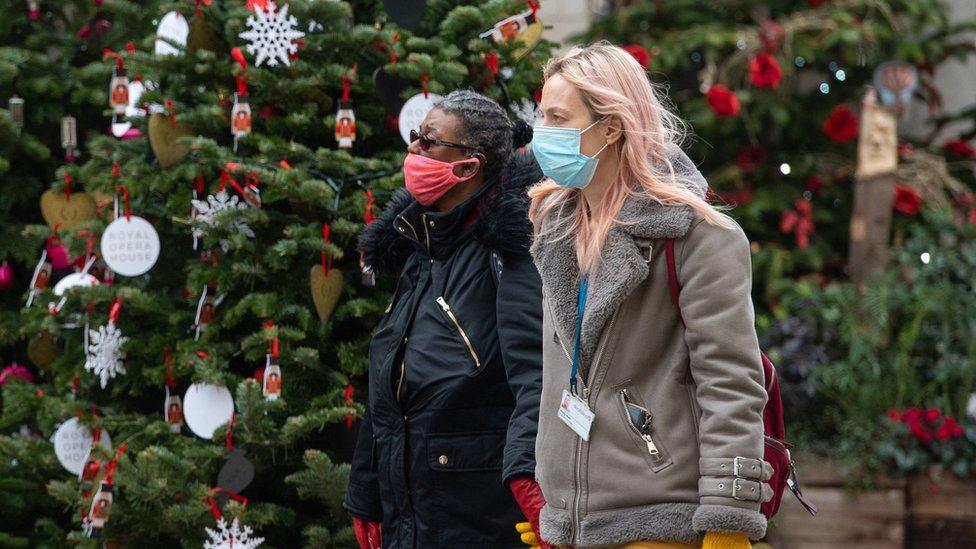
- Published16 December 2020
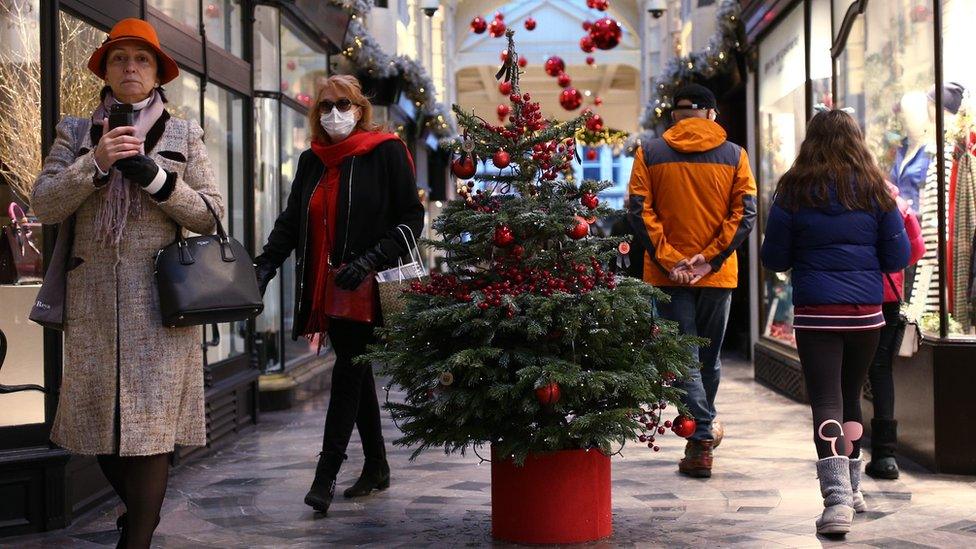
- Published23 December 2020
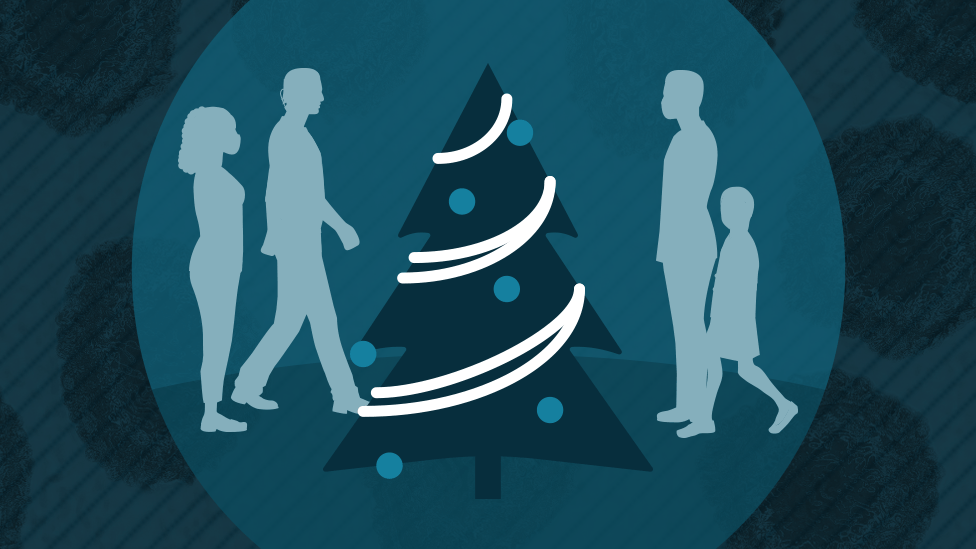
- Published25 November 2020
